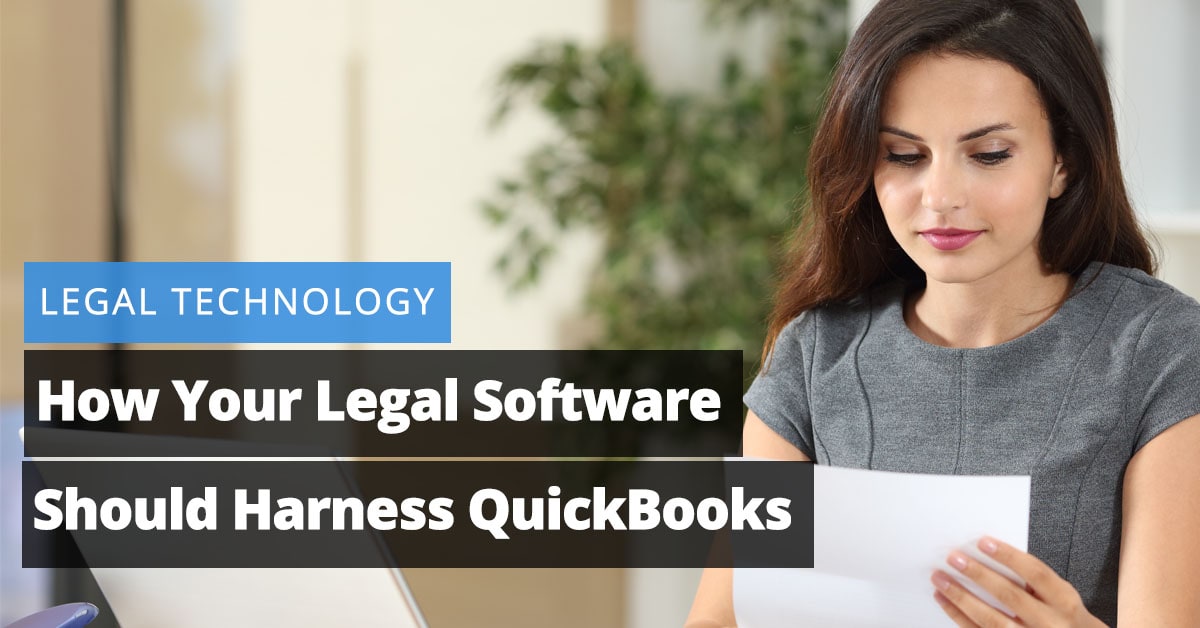
Attorneys are advocates by trade, and fighting for the rights of their clients is a noble endeavor that, due to its importance, can occasionally allow administrative tasks to fall by the wayside. Though some of these menial to-dos can go days, or even weeks, untouched with minimal ramifications, others cannot. Firm-wide accounting is as tricky as it is essential to your firm’s success, and though attorneys are experts in various areas, accounting is a different matter altogether. Enter: QuickBooks for attorneys, a platform that, when combined with your firm’s practice management software, has the power to optimize a law firm’s financial management to extraordinary degrees.
What QuickBooks Does
QuickBooks is an incredibly robust platform used by professionals in various fields. This solution allows its users to track income and expenses through invoice management, expense reports, bill management, and running payments.
Because it services a broad spectrum of professional fields, QuickBooks is not created with attorneys in mind. That being said, the platform is extremely powerful for firm-wide accounting purposes, but it misses the specificity offered by solutions designed with attorneys in mind.
The Challenge of Specificity
The hurdle to overcome when thinking of a QuickBooks for Attorneys – that is, a platform as comprehensive as QuickBooks with features tailor-made to accommodate legal professionals – the challenge is capturing the best of both worlds. After all, solutions such as LawPay are designed specifically for use in the legal field, but they offer one particular service (in the case of LawPay, payment processing) to their users. The umbrella of functionalities offered by QuickBooks is difficult to customize to the particular needs of a modern law firm.
Leveraging QuickBooks for Attorneys
The answer, of course, is not to look to an alternative to QuickBooks; they are a top-of-the-line accounting platform. Instead, the optimal solution is to search for a practice management software offering a robust integration with QuickBooks Online. Just as it does with the more menial administrative tasks in your firm, your legal software should bridge the gap between QuickBooks and law-specific functionality.
Conclusion
Legal software that integrates with QuickBooks effectively transforms the law firm. This renders QuickBooks not only an attorney-specific platform but one that connects directly with your law firm’s entire arsenal of data, making for an accounting process that is both more efficient and more robust.


